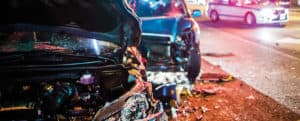 Whether a vehicle will be totaled or not, following an auto accident, is an issue which is not well-understood by many car owners. A consumer whose car appears to only have minor damage following an accident can be stunned when their insurance agent tells them their car is totaled. If you’re unhappy with the insurance company’s offer, speak with a personal injury lawyer in Los Angeles at Citywide Law Group today for a free consultation.
Whether a vehicle will be totaled or not, following an auto accident, is an issue which is not well-understood by many car owners. A consumer whose car appears to only have minor damage following an accident can be stunned when their insurance agent tells them their car is totaled. If you’re unhappy with the insurance company’s offer, speak with a personal injury lawyer in Los Angeles at Citywide Law Group today for a free consultation.
When Will an Insurance Company Total a Car?
According to GEICO, one of the top insurance companies in the nation, a vehicle is considered a total loss (totaled) if:
- There is no way to repair the damage to the vehicle in a manner which leaves the vehicle as safe as it was prior to the accident;
- The vehicle is not worth the amount the repairs will cost, or
- There is such severe damage to the vehicle that California state regulations require that the vehicle be declared totaled.
So, although cars are usually considered “totaled” when it will cost more to repair the vehicle than the vehicle is worth, in practical terms, it may not be smart to repair the vehicle, even when the cost of repair is less than the actual cash value of the vehicle.
Insurance companies most typically consider a vehicle to be a total loss when the repairs are 75 percent of the actual cash value of the vehicle. Also, practically speaking, there are additional factors your insurance company may consider, including:
- Even if your car is relatively new, if it is in worse condition than the average vehicle of the same type and age, the amount you receive may be lowered.
- Part of the “condition” of your car is tied to mileage. If you have a vehicle which is only three years old, but you have already put 110,000 miles on it (the “average” mileage is about 12,000-15,000 per year), then the insurance company may be more likely to total the car if the repairs are particularly high because the value of the car is less.
- Your specific kind of car—higher end and “classic” vehicles are treated differently than your “average” car—since the manner in which they depreciate in value is different from “average” cars.
- The age of your car will play a large role in the value of the vehicle.
Determining the Value of Your Vehicle
While you are anxiously waiting for your insurance company to determine the value of your vehicle, you can do a little detective work on your own. You can look online at Kelley Blue Book, National Automobile Dealers Association or Edmunds to check the value of your vehicle. It is a good idea to check all three sites in order to get a solid value for your vehicle.
You will type in all the information about your vehicle, including make, model, mileage and VIN number, as well as extras added to your vehicle such as upgraded speakers or stereo system, high-dollar rims, specialty tires, etc.
You should end up with approximately the same amount your insurance company will offer you in the event your vehicle is declared a total loss. The takeaway here is that while your car may be priceless to you, there is a firm system which determines the actual cash value, and the decision as to whether your car will be declared a total loss is based on the ACV of your vehicle and the amount of repairs necessary.
Who Receives the Payment for a Totaled Vehicle?
The above information assumes you own your vehicle outright, and it is not financed. Of course, if you own your vehicle, the check for your totaled car goes directly to you. If your car is financed, the finance company receives the amount you owe them first, and if there is anything left over, you will receive the balance.
If the settlement amount is less than what you owe, you will still be responsible for paying the remainder of your loan balance. You may have opted for “gap” insurance when you financed your vehicle, so be sure and check to see if you have this type of insurance which will cover your unpaid balance.
If your insurance company is telling you your vehicle is a total loss, and you strongly disagree with their assessment, it could be beneficial to speak to a personal injury attorney who can ask the necessary questions to ensure your rights are protected following your auto accident.
For more information, call our law firm at (424) 248-2700 or visit our contact us page to send us an email.




